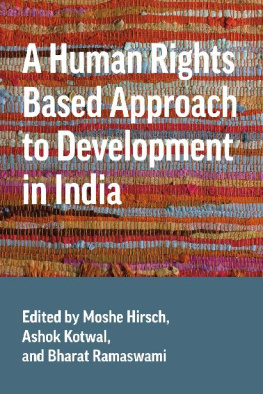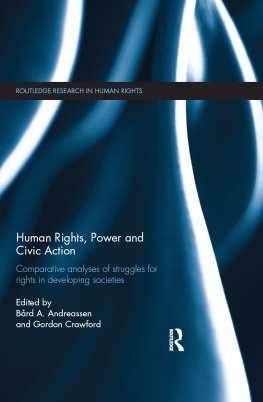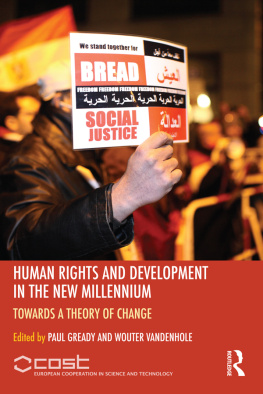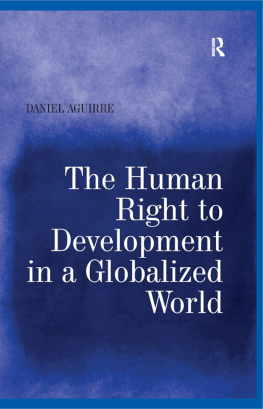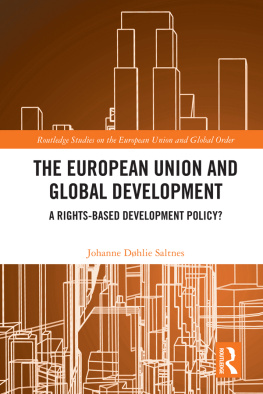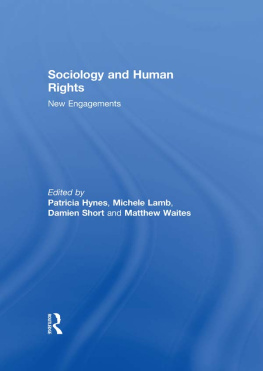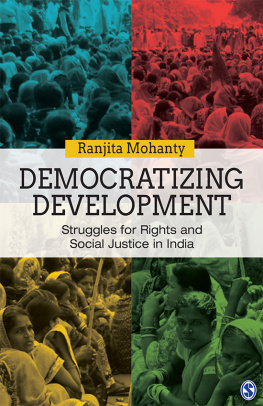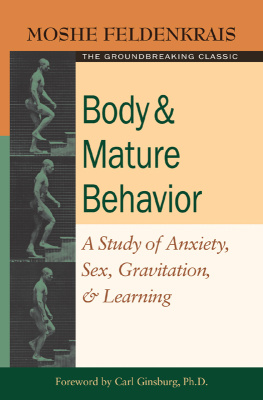A HUMAN RIGHTS BASED APPROACH TO DEVELOPMENT IN INDIA
The Asia Pacific Legal Culture and Globalization series explores intersecting themes that revolve around the impact of globalization in countries on the Asia Pacific Rim and examines the significance of legal culture as a mediator of that impact. The emphasis is on a broad understanding of legal culture that extends beyond traditional legal institutions and actors to normative frameworks and the legal consciousness of ordinary people. Books in the series reflect international scholarship from a wide variety of disciplines, including law, political science, economics, sociology, and history.
Other volumes in the series are:
Sarah Biddulph and Ljiljana Biukovi, eds., Good Governance in Economic Development: International Norms and Chinese Perspectives
Daniel Drache and Lesley A. Jacobs, eds., Grey Zones in International Economic Law and Global Governance
Sarah Biddulph, The Stability Imperative: Human Rights and Law in China
Pitman B. Potter, Assessing Treaty Performance in China: Trade and Human Rights
Pitman B. Potter and Ljiljana Biukovi, eds., Globalization and Local Adaptation in International Trade Law
A HUMAN RIGHTS BASED APPROACH TO DEVELOPMENT IN INDIA
Edited by Moshe Hirsch, Ashok Kotwal, and Bharat Ramaswami
Contents
PITMAN B. POTTER
MOSHE HIRSCH, ASHOK KOTWAL, and BHARAT RAMASWAMI
MILIND MURUGKAR
ASHOK KOTWAL, BHARAT RAMASWAMI, and WILIMA WADHWA
ASHWINI KULKARNI
MILIND KANDLIKAR
NISHA MALHOTRA
ASHWINI DESHPANDE
MILIND KANDLIKAR AND SIMON HARDING
MOSHE HIRSCH, ASHOK KOTWAL, and BHARAT RAMASWAMI
Tables and Figures
Tables
Figures
Foreword
PITMAN B. POTTER
This volume examines the challenge of coordinating local performance of international trade and human rights standards in the Asia Pacific region, with particular attention to questions about the right to development. The book is part of a group of edited volumes examining different aspects of trade and human rights performance presented by the Asia Pacific Dispute Resolution (APDR) project and published in the UBC Press Asia Pacific Legal Culture and Globalization series. The APDR program began in 2003 with a SSHRC/MCRI-supported project on normative and operational conditions for local compliance with international trade and human rights standards in Canada, China, and Japan. Since 2009, the APDR project has focused on understanding integrated compliance with international trade and human rights standards from a comparative perspective. This has involved building conceptual understanding and generating policy analysis on coordinating performance of international standards on trade and human rights in the Asia Pacific region, with particular attention to Canada, China, India, Indonesia, and Japan. The APDR project is based at the Peter A. Allard School of Law and the Institute of Asian Research of the University of British Columbia, and involves a collaborative network of colleagues from UBC and from partner institutions in North America, Asia, and Australia.
The challenge of coordinating local compliance with international trade and human rights standards is a critical issue for the globalized world. International, regional, and subnational disputes over issues of trade and human rights present increasingly serious obstacles to international cooperation. Resolving and, where possible, preventing such disputes will benefit the course of international cooperation in areas of trade and human rights. Such efforts will also help reduce transactional, operational, and opportunity costs resulting from international disputes that make existing relationships more complex and costly, entail significant management costs, and distract public and private sector leaders from other, more productive pursuits.
Coordinating local compliance with international trade and human rights standards has been difficult in part because of conceptual differences and assumed trade-offs between these two regimes. All too often, human rights standards around the right to development, for example, are seen as inconsistent with trade goals of efficiency, economic growth, and private property rights. Conversely, trade policy is often seen as an obstacle to achieving human rights goals concerning health, education, and food security. As well, coordinated compliance with international trade and human rights standards has been elusive because the officials and specialists who manage local interpretation and implementation of these regimes often have few opportunities for institutional collaboration.
Mindful of these conceptual and organizational challenges, this project works to build knowledge and policy support for coordinating local compliance with international trade and human rights standards in ways that are mutually sustaining rather than conflicted. The project has generated policy proposals for building treaty compliance programs, processes, and institutions that are more responsive to cross-cultural differences and aim to resolve and, where possible, prevent disputes over trade and human rights. The results of the research are enabling interdisciplinary scholars and policy makers to better understand the requirements for coordinated compliance and have the potential to reduce and prevent disputes over trade and human rights, thus enhancing international cooperation.
This UBC Press series will publish new volumes edited by leading international scholars in their respective fields on the interaction of trade policy with human rights issues such as the right to development, labour relations, health policy, poverty and inequality, and government accountability. The books are grounded in original empirical research as well as qualitative and quantitative analyses relating to international trade and human rights. The work is characterized by a high degree of interdisciplinarity and focuses on questions of legal culture, international law, and globalization in the countries that compose the Asia Pacific region.
Research for this volume and for the APDR project of which it is a part has been supported by the Social Sciences and Humanities Research Council of Canada under its Major Collaborative Research Initiatives program, for which my colleagues and I are deeply thankful. The APDR project has benefited immensely from input and advice from an International Advisory Board constituted as follows:
Jack Austin (former Government Leader in the Senate of Canada and former president of the Canada China Business Council)
Joseph Caron (former Canadian High Commissioner to India, Ambassador to China, and Ambassador to Japan)
Professor Thomas Cottier (former managing director of the World Trade Institute, Berne, Switzerland)
The Honourable Irwin Cotler (former Member of Parliament; former Minister of Justice)
Professor Ernst-Ulrich Petersmann (European University, Florence, Italy)
Professor John Hogarth (Professor Emeritus, Peter A. Allard School of Law, University of British Columbia)
Jonathan Fried (Ambassador and Permanent Representative of Canada to the World Trade Organization, Geneva, Switzerland).
This project has included a wide range of graduate students working as researchers, analysts, and writers. Graduate students contributing to the work on this volume include Alvin Pei-ting Lin and Arka Roy Chaudhuri.



